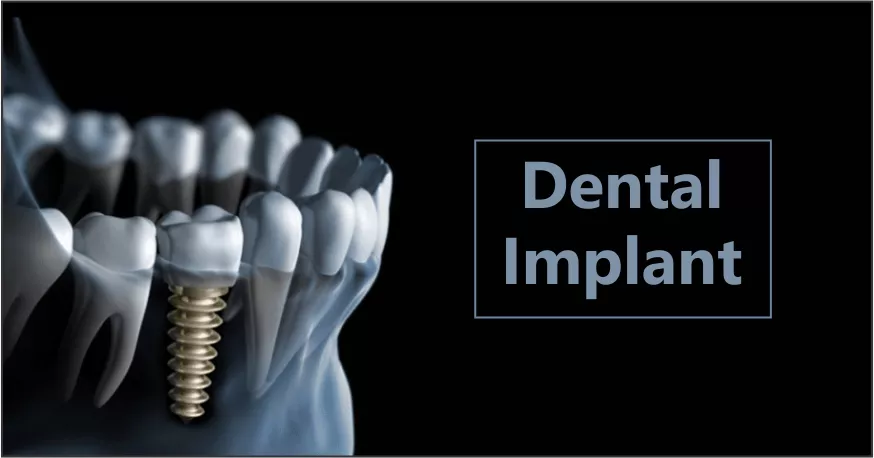Dental implants have revolutionized the field of dentistry, offering a reliable solution for replacing missing teeth and restoring oral function.
Among the various types of dental implants, full mouth dental implants stand out as a comprehensive approach to restoring an entire arch of teeth. In this article, we delve into the longevity of full mouth dental implants, exploring factors that contribute to their durability and what patients can expect in terms of lifespan.
Understanding Full Mouth Dental Implants
Full mouth dental implants, also known as full arch dental implants or implant-supported dentures, are designed to replace a full set of upper or lower teeth. Unlike traditional dentures that rest on the gums or rely on adhesives, implant-supported dentures are anchored securely to dental implants surgically placed in the jawbone.
The dental implant itself is a titanium post that serves as an artificial tooth root. Once the implant integrates with the surrounding bone through a process called osseointegration, it provides a stable foundation for attaching dental prosthetics such as crowns, bridges, or dentures. Full mouth dental implants are a popular choice for individuals who have lost all or most of their teeth and seek a permanent and natural-looking solution.
SEE ALSO: How to Brush Dental Implants
Factors Influencing Longevity
Several factors play a role in determining how long full mouth dental implants can last:
Implant Quality: The quality and design of the dental implants used significantly impact their longevity. High-quality implants made from biocompatible materials like titanium are known for their durability and ability to integrate well with the bone.
Bone Density and Health: The success of dental implants relies on sufficient bone volume and density to support the implants. Patients with good bone health and adequate jawbone structure tend to experience better implant stability and longevity.
Oral Hygiene: Proper oral hygiene practices are crucial for the long-term success of dental implants. Patients must maintain regular brushing, flossing, and professional dental cleanings to prevent gum disease and peri-implantitis, which can compromise implant stability.
Overall Health: General health conditions such as diabetes, autoimmune disorders, and smoking habits can influence implant longevity. Patients with well-managed health conditions and healthy lifestyle habits often have better outcomes with dental implants.
Implant Placement and Restoration: The skill of the dental implant surgeon and the quality of the restoration (crowns, bridges, or dentures) also impact how long full mouth dental implants last. Proper placement and alignment of implants contribute to their stability and function.
Expected Lifespan of Full Mouth Dental Implants
On average, full mouth dental implants can last anywhere from 10 to 20 years or more with proper care and maintenance.
Some patients may enjoy their implants for several decades, especially if they follow recommended oral hygiene practices and attend regular dental check-ups.
It’s important to note that individual experiences with dental implants can vary based on unique factors such as bone health, oral habits, and overall health status. Regular follow-ups with your dentist and periodic assessments of implant health can help detect any issues early and prolong the lifespan of your dental implants.
Maintenance Tips for Long-Lasting Implants
To maximize the lifespan of your full mouth dental implants, consider the following maintenance tips:
Follow Oral Hygiene Guidelines: Brush your teeth at least twice a day and floss daily to remove plaque and prevent gum disease.
Attend Regular Dental Check-ups: Schedule routine dental visits for professional cleanings and examinations to monitor implant health.
Avoid Harmful Habits: Quit smoking and limit alcohol consumption to promote oral and overall health.
Protect Implants During Activities: Wear a mouthguard during sports or activities that could potentially impact your dental implants.
Address Issues Promptly: Contact your dentist if you experience any discomfort, pain, or changes in the appearance or function of your implants.
By adhering to these guidelines and working closely with your dental care team, you can enhance the longevity of your full mouth dental implants and enjoy a confident smile and improved oral function for years to come.
Conclusion
Full mouth dental implants offer a reliable and long-lasting solution for restoring a complete set of teeth. While the lifespan of dental implants can vary based on individual factors, proper care, maintenance, and regular dental visits can significantly contribute to their durability.
Patients considering full mouth dental implants should consult with a qualified dental professional to assess their candidacy and receive personalized guidance on implant care and longevity.

